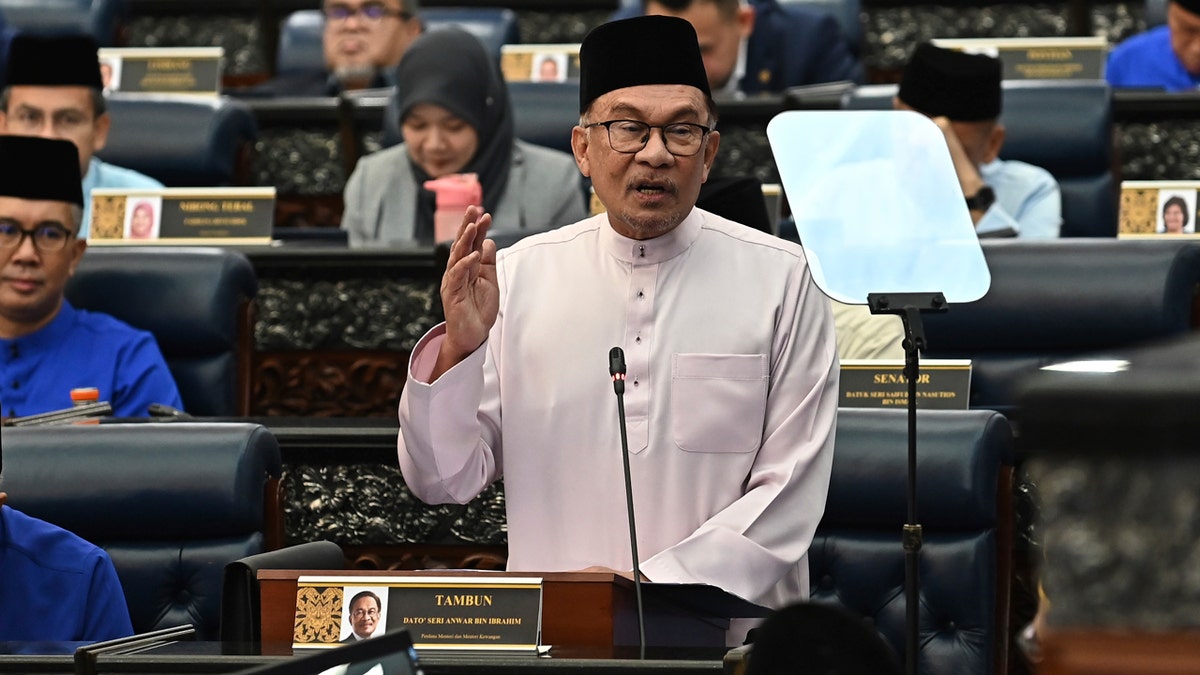Fox News Flash top headlines for October 13
Fox News Flash top headlines are here. Check out what's clicking on Foxnews.com.
Malaysia will progressively cut subsidies and launch new taxes including for luxury goods next year as part of economic reforms and to tighten its finances, Prime Minister Anwar Ibrahim said Thursday.
Anwar, who took power last November, announced the measures while tabling 2024 federal budget in Parliament. He said the 393.8 billion ringgit ($83.3 billion) budget is aimed at fixing economic imbalances and helping people to cope with rising cost of living amid a global economic slowdown.
Anwar, who is also finance minister, said economic growth is likely to slip to 4% this year but could reach nearly 5% in 2024.
MALAYSIA DEFENDS ITS USE OF PUPPIES AS LIVE BAIT TO CAPTURE BLACK PANTHERS
He said Malaysia's annual subsidies for fuel, food and other items were among the highest in the world but its taxes among the lowest. This year, for instance, he said government subsidies and social assistance surged to 81 billion ringgit ($17 billion) as global commodity prices rose. For 2024, the government allocated 52.8 billion ringgit ($11.2 billion).

Malaysian Prime Minister and Finance Minister Anwar Ibrahim speaks at the Parliament, Kuala Lumpur, Malaysia, Friday, Oct. 13, 2023. (Malaysia's Department of Information via AP)
Anwar said a revamp was needed to ensure the funds targeted only needy citizens. At the moment, he said subsidies were of greatest benefit to the rich, as well as immigrants.
"So starting next year, the subsidy restructuring will be implemented in phases," he said. "We hope that by plugging the subsidy leakage, we can pass on the savings to the people" with increased cash aid and higher wages, he added.
INDIA, MALAYSIA REJECT CHINA’S NEW TERRITORIAL MAP THAT CLAIMS DISPUTED LAND AS ITS OWN
Anwar said the government will introduce a 5%-10% tax on luxury goods such as jewelry and watches, as well as a 10% capital gains tax next year to expand its revenue base.
Tourists will be exempt from the tax on luxury goods, he said.
The current services tax will be raised from 6% to 8%, though this will exclude sectors such as food, beverages and telecommunications, he added.
CLICK HERE TO GET THE FOX NEWS APP
Anwar said the moves will help reduce Malaysia's fiscal deficit to 4.3% of gross domestic product next year, from an estimated 5% this year.





















